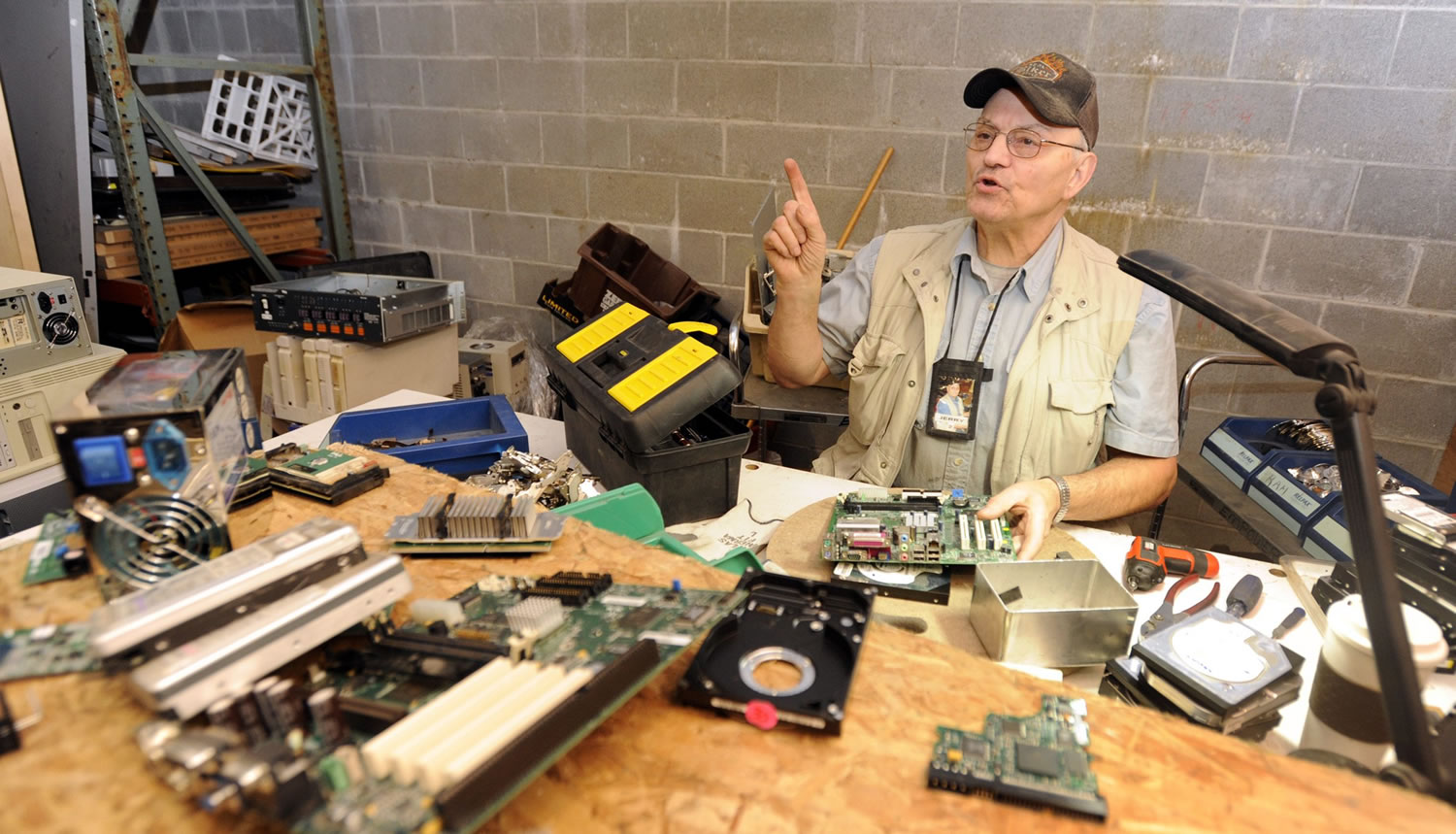On the Web: http://hsc-wa.org/VolunteerConnections.
Call: 360-735-3683.
Walk in: 201 N.E. 73rd St. (off Hazel Dell Avenue), Suite 101.
If you’re not 55 or older: You can still volunteer through the Volunteer Center — same place, same phone.
Jerry Kurtti surveyed his kingdom and said he can’t imagine all that good metal and plastic pointlessly stuffing some garbage dump.
Kurtti’s kingdom is a workroom at Empower Up, a nonprofit technology-recycling shop on Fourth Plain Boulevard. On Thursday morning, it was piled high with used computers and busy with volunteers who were disassembling them and passing the hard drives and circuit boards Kurtti’s way.
He demonstrated his careful-but-quick process for this last bit of crucial breakdown — unscrewing obvious screws and locating hidden ones, removing a magnet and separating pieces of plastic and aluminum. He always brings his own motorized screwdriver, he said, because he never wants to make friends with carpal tunnel syndrome.




